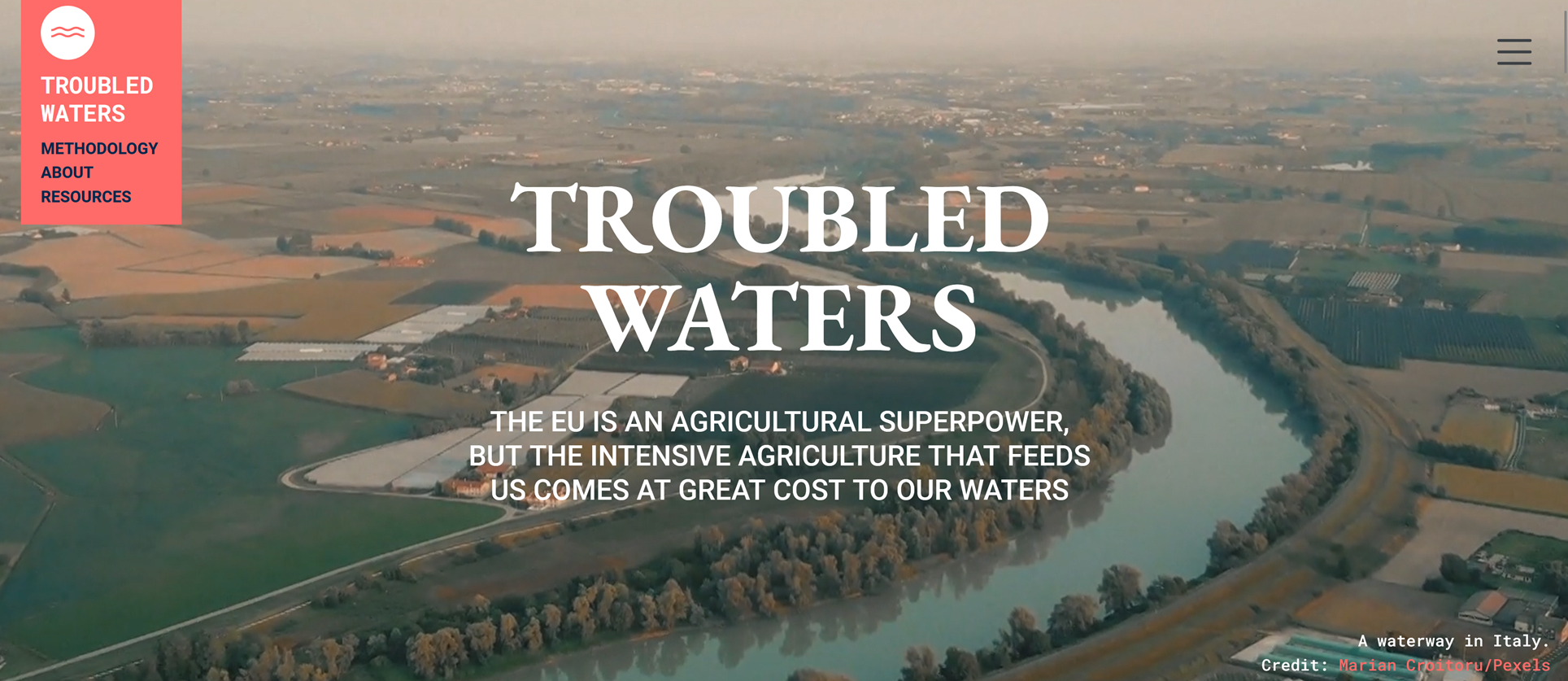60 per cent of Europe’s surface water (lakes, rivers etc.) are not in a good chemical or ecological status, and more than a quarter of the ground water is in the same state, with agriculture remaining one of the main pressures on our water bodies. These numbers are probably underestimated, due to insufficient data and the current testing practices.
These are some of the conclusions highlighted in “Troubled Waters”, a new research project by Jelena Prtorić from Arena for Journalism in Europe and Luisa Izuzquiza from the German NGO FragDenStaat. The two have researched the status of Europe’s waterways, the severe impact of agricultural practices on water quality, and how the effort to curb and halt water pollution, at both European and national level, achieves “too little, too late”.
The investigation’s website features case studies from several countries, and more material will be added in coming months. Moreover, the website comes with a guide on how to submit FOI requests to the relevant authorities and institutions, with a resource section containing useful reads, and a database of more than 12,000 documents related to the EU water policies.
Jelena Prtorić and Luisa Izuzquiza’s investigation is a result of their one-year fellowship with the Bertha Foundation. Every year, the foundation launches a challenge for activists and investigative journalists around a specific topic. The 2022 topic was “Water”, and the question was “How is the relationship between politics and profit contributing to the degradation of our freshwater and oceans, and what can be done to ensure equitable access and protection of these finite resources for people and planet?”
”We show how ambitious legislation has been watered down, weakened, or delayed,” says Jelena Prtorić.
“Our research is very policy-oriented, and there are many more stories waiting in the material we have gathered and/or published,” she says. “So we are considering making a list of story ideas for possible further research, that others could look into.”
The investigation will be presented in an online session by the Arena Food&Water network in late January. The date hasn’t been finally determined yet but follow @journalismarena on Twitter to stay updated.
